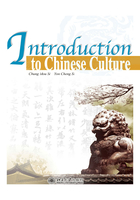
2 The Qingming and Hanshi Festivals
There are numerous pieces of Chinese literature produced based on the topic of the Qingming Festival. In those works, Qingming is always described as a day full of sadness, and most of the time it is a rainy day, when the rain is light and mild. Also, people often visit the cemetery on that day. However, in the ancient times, Qingming (meaning “pure brightness” if translated directly) had nothing to do with visiting the cemetery or remembering the ancestors. It was just one of the 24 solar terms in the Chinese calendar year where it represented the time for farmers to plough and to plant the seeds. It is usually on a day in the second or the third month of the Chinese calendar year when spring arrives.
So how is Qingming eventually became linked to visiting the cemeteries? Visiting cemeteries was actually the traditional thing to do during the Hanshi Festival. The Hanshi itself has a story behind it. During the Spring and Autumn Period (770 BC - 476 BC), Jie Zhitui followed the prince of the State of Jin, Chong'er, who went into exile. One day, they got lost and were trapped in the mountains, they had no food left and there was no one passing by to offer help. Jie saw that the prince was extremely hungry, so he decided to cut off a piece of meat from his own thigh to cook as food for the prince.
After 19 years of exile, the prince finally returned to Jin and became the king. He wanted to reward Jie for his kindness and generosity, but Jie did not want any rewards, he only wanted to be with his elderly mother to look after her well, so he moved to live in the woods with her. The king was not impressed when the messenger told him that Jie did not want to be a government official; he insisted that Jie come and work for him. Upon hearing that the government officials were after him, Jie decided to hide, so he carried his mother on his back and went deep into the mountains. Again, the news came to the king that his invitation had failed because Jie was hidden deep in the mountains.
At this point, the king decided to force him out of the mountains, so he ordered his men to set fire to the mountains and burn down everything until he came out. Of course, Jie remained unwilling to come out, at last there was nothing he could do but climb a tree in an attempt to escape the fire but was burned to death. The king heard about this and started to regret his previous decision. Consequently, he ordered that from then on, no fire was allowed to be lit on this day ever again. This day became known as the Hanshi Festival, and was always one or two days before Qingming. Since the two days were so close to each other, people simply combined them. Nowadays, the Chinese almost never recognise the Hanshi Festival; instead, they maintain the habit of visiting the cemeteries on Qingming Festival.
During Qingming Festival, a lot of Chinese, even those who are living overseas, try to get back to their hometown to visit their ancestors' tombs, bringing bunches of fresh flowers, fruits, wine, joss-sticks and other materials for worship along with them. Visitors of the tombs will not only make a prayer to their ancestors but they will also clean the graves by removing weeds and cleaning the headstones, and then offering sacrifices for to worship the deceased.
Respecting and treating those who are older than you well is an important thing to do according to traditional Chinese moral values. This attitude extends towards those who have passed away. The idea of attending the funeral rites of parents and worshipping them on important days is still very strong these days, although many people cannot really follow them because of the constraints of the busy working schedules in the modern world. However, at the very least, whenever it's Qingming Festival, most Chinese will go to the cemetery to visit their ancestors' tombs and pay their respect.

Visiting the Cemetery